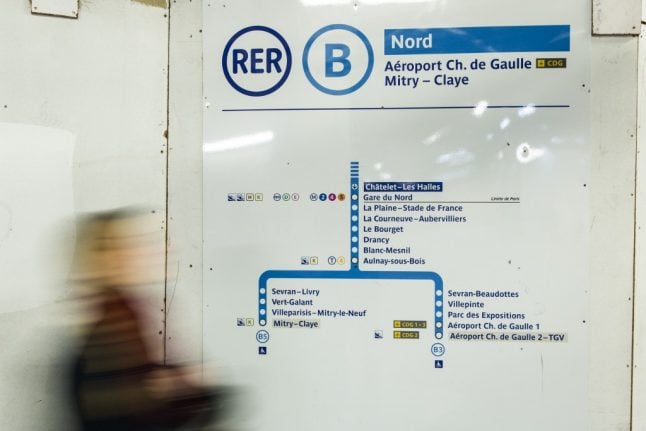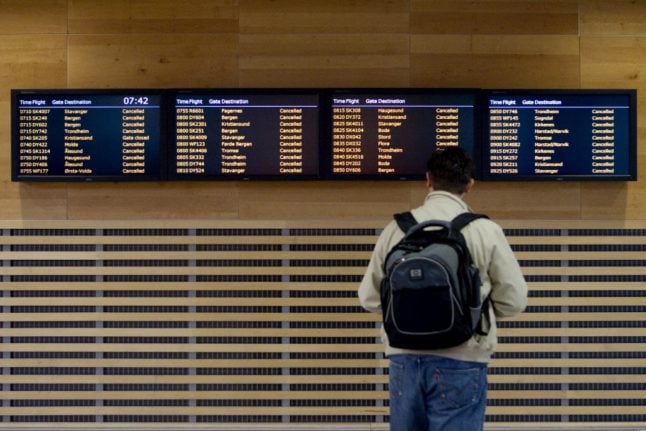 Photo: AFP
Photo: AFPAIRPORT
Charles de Gaulle express train: Summer closures on RER B scrapped
The new high-speed link between Paris Charles de Gaulle airport and the city centre will be ready for 2025 - not 2024, the French government confirmed on Wednesday, meaning there will be no need for those pesky long summer closures.
Published: 29 May 2019 15:48 CEST

Photo: AFP
The direct rail link between Charles de Gaulle airport and Gare de l'Est is scheduled to be completed by the end of 2025, one year after the Olympics, France's Transport Minister Elisabeth Borne has announced.
This is the final episode in a saga which has seen disagreements between political heavyweights over the programme for the ambitious construction project.
Valérie Pécresse, president of the greater Paris transport network Ile-de-France Mobilités had declared that the previous deadline of 2024 – which would see the work finished in time for the Paris Olympics – was “radically untenable”.
French ministers were then asked to vote on two possible options.
 Photo: AFP
Photo: AFP
The second option – the one chosen by French ministers – will see parallel tracks to the current rail lines built, which has the advantage of limiting disruption to passengers, but means the project will not be finished until the end of December 2025.
Valérie Pécresse and other elected officials in the greater Paris region of Ile-de-France unanimously voted for this option.
Option one was to press ahead with the 2024 deadline and open the link in time for the Olympics.
However, this would have necessitated much more disruption on the network and for a period of three weeks over the summer 2022 and another three weeks in 2023, the current RER line B service would have had to close completely.
This would have meant that everyone who currently uses it to get to and from the airport, plus commuters to and from northern Paris suburbs like Drancy and Aubervillers, would instead have been on buses.
It is estimated this would have added 200,000 to 300,000 people to the bus network and would require buses leaving Gare du Nord every two minutes.
Ile-de-France Mobilités had admitted that this would “worsen the already problematic punctuality of RER B”.
To get to Charles de Gaulle airport passengers can currently either take a taxi, a bus or get the RER B train service from Gare du Nord station.
Some of the RER B services are direct to the airport and take roughly 35 minutes, while other services stop at local stations along the way and can take 45 minutes. The service is often hit by delays and strikes.
The 32km trip on the planned CDG Express will take 20 minutes and cost €24, more than double the current cost of getting to the airport by RER train.
The project has been controversial because it is essentially replacing a service that already exists, albeit in a slower form, and critics have said that the money could be better spent improving services for the whole of the Paris area.
However the government insists that a better airport link will in fact benefit the whole of the Ile-de-France area.
Url copied to clipboard!


 Please whitelist us to continue reading.
Please whitelist us to continue reading.
Member comments